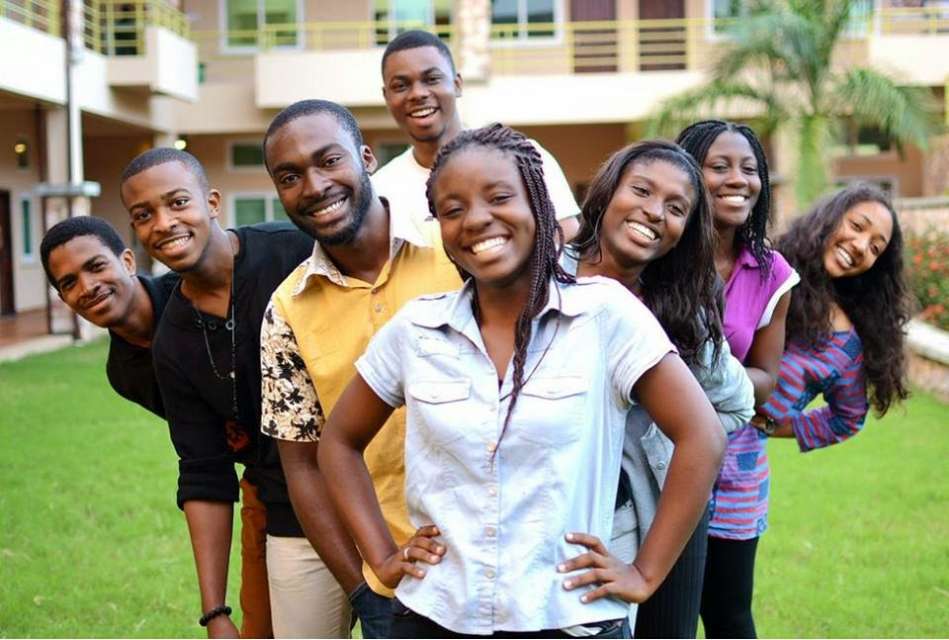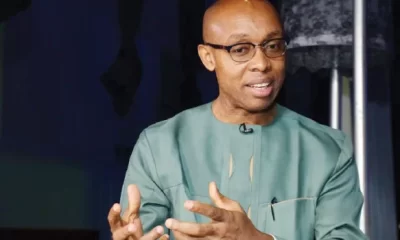National Issues
Advisability Of Creating Non-Discriminatory Opportunities For Nigerian Youths -By Isaac Asabor

It is not an exaggeration to say that virtually all the youths that have being deprived of the opportunity to study in any of the tertiary institutions that cut across colleges of education, polytechnics and universities and their likes are unhappy with the situation they find themselves. Most of them find themselves in such situation as extant admission policies put in place by the Joint Admissions and Matriculation Board (JAMB) on the one hand, and the leaderships of various higher institutions, on the other hand have constituted a barrier to gaining admissions for them to become the professionals they aspire to become. Aptly put, those that decide who to offer admission are wont to ‘pause’ the button on the academic dreams of most young Nigerians youths by each passing year.
Against the backdrop of the foregoing, families that are well-to-do families, and invariably “connected”, always ensure that their children and wards gain admission to study; either in Nigeria or in countries that cut across the world. Conversely, youths that are less privileged are left to remain with their parents, and in that light allow the devil to literarily turn their minds to playgrounds. Analyzed from the perspective of the foregoing there is no denying the fact that the class divide that has sociologically characterized Nigerian youths has been kept widening between the youths whose family backgrounds are of the lower class and those of the upper class as there is no more middle class.
There is no denying the fact that evidence of inequalities among Nigerian youths is not only in the sphere of education, but also in the labor market. The level of inequality that prevails in the labor market can be seen through the ease with which children of the rich seamlessly secure juicy jobs while the less privileged ones can be seen jay walking in search of elusive jobs; even with good grades. It is this disparity between youths from rich and poor families, more than poverty itself that generates anti-government gushes that fuel civil unrest just like we recently witnessed in EndSARS debacle.
There is no denying the fact that non-generation of viable employment or rather means of livelihood for young people by the governments at all tiers; whether for youths from rich homes or poor homes, remains a serious national challenge that should be urgently addressed before the inaction boomerangs as it did in the case of EndSARS debacle. This situation is particularly worrisome when analyzed from the backdrop of the situation that some youths in the informal sector of the economy are completely deprived from all empowerment programmes been carried out by the government.
For instance, how many youths are aware of the Nigerian Youth Employment Action Plan which was developed by the Federal Ministry of Youth and Sports Development (FMYSD) as a built-in strategy to respond effectively to the youth employment challenge in Nigeria? The answer to the foregoing question cannot be farfetched as it is only the children of the rich and the politicians will be aware of the programme and the benefits it that are inherent in it.
For the sake of clarity, the major objectives of the plan are to address fragmentation of youth initiatives that prevent assessment of impact, and to provide Nigeria youth with investment inputs required to build successful businesses that can become sustainable employers of labor and contributors to Nigeria’s development.
The plan targets young people between the ages of 18-35 years and details the needed actions required to support business establishment, expansion and consequent employment creation for youth in critical economic and social sectors.
It would be recalled that the Federal Executive Council on the 22nd of July, 2020 approved the sum of N75, 000,000,000.00 (seventy five billion naira) for the establishment of the Nigeria Youth Investment Fund for the period of 2020 – 2023 dedicated to investing in the innovative ideas, skills and talents of Nigerian Youth, and to institutionally provide the youths with a special window for accessing much needed funds, finances, business management skills and other inputs critical for sustainable enterprise development. FMYSD is the lead implementation entity and is responsible for budgetary provisions and for funds mobilization. If not that those representing the government in announcing employment opportunities to the youths, and ensure the youths key into it are not politicizing it, this writer is optimistic that most programmes designed by the government to create jobs for them would have by now been able to be of benefit to a wide spectrum of the youth population.
The challenges of youth unemployment and, perhaps, low productivity self-employment are multi-faceted. It would not be out of place to say that solutions require, should no doubt, be a 360 degree approach by collaborating with organizations and at the level of government leadership, so as to create enabling environments and remove obstacles to youth employment, entrepreneurship and productivity.
Without resort to laying so much emphasis on the consequences of not empowering the youths, it suffices to say in this context that a quote credited to late Mallam Aminu Kano that says, “Nigeria will know no peace until the son of a nobody can become somebody without knowing anybody”, and that of Chief Obafemi Awolowo that says, “The children of the poor you failed to train will never let your children have peace” are self-explanatory enough. In the same vein, a youth that belongs to the present generation, Sijibomi Ogundele, the youthful and vibrant CEO of Sujimoto Group recently warned, “If your neighbor is hungry your chicken is not safe”.
In the bid to point the way out from this quagmire that the youths have been beleaguered with, it is expedient to say that equal opportunity means that all young Nigerians have a fair chance to succeed in life. Equal opportunities mean that whatever the background of any youth, he or she would still have a good chance to secure any job, profession or position in society. It should mean that youths born in privileged sections of the society should not have an unfair advantage, which enables them to gain better jobs and lifestyle. To a large extent, governments should ensure that policies and programmes put in place at every political dispensation are robust enough to promote equal opportunities for everyone.
Reiteratively put, if youths from underprivileged homes are not discriminated against to gain education and skills, this goes a long way to promoting equal opportunities in the labor market. If the youth have the opportunity to gain the relevant qualification, in theory, they can overcome any disadvantage they may have from their family backgrounds. To create equal opportunities in education is a big issue itself. In theory, if every youth in our society is entitled to go to school and university, then that ensures a certain degree of equal opportunities.
To overcome this problem of unequal education, the government could spend more money on somewhat substandard schools by upgrading the infrastructure, number and qualities of lecturers and ensuring that courses offered in the institution meet the set standard for accreditation by either the National University Commission (NUC) or the National Board for Technical Education (NBTE).
As far as education remains a key factor in determining the chances of determining how far a youth will go, the government should ensure that equal opportunities are made available to them through governance. Equal educational opportunities, no doubt, close chasm that exists between youths of different family background.
It is germane to note in this context that there are situations where the gap is difficult to bridge but God in His infinity mercies, being the Jehova Jireh (The God of Provisions) Genesis chapter 22 verse 14 will divinely close the gap Himself. As they say in local parlance, “Heaven help those who help themselves”.
The situation pointed out in the foregoing is prevalent in this part of the world. For example, if a youth is brought up in a broken home in an area of high unemployment and limited prospects, it is more unlikely that they will have the same chances as those brought up in much more affluent areas by parents who spend more time promoting the interests of their children. Parenting is a difficult factor to legislate for. Government policies cannot prevent parents from divorcing or dealing with issues like alcoholism or absent parents.
Be that as it may, one legal instrument put in place last year by Ekiti State government, and also Kano State government, was to make parents legally responsible for ensuring their child attended school. This was an attempt to place responsibility on parents to make sure their child valued school. However, even this cannot change the culture and mindset of parents who take less interest in the academic welfare of their children. Another issue is whether children from poor backgrounds are more likely to stay poor. Areas of mass unemployment and limited prospects can make it difficult for children to gain improved academic and business prospects. Employers may even tacitly discriminate against people with certain background. Often we get issues of high employers focusing on graduates from certain Ivy League schools.
To this end, governments at all tiers should at all costs eschew the creation of discriminatory opportunities for Nigerian youths.




















